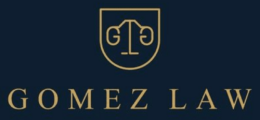How it works: Legal vs Equitable Title?
When adverse claims to a piece of Real Estate exist, many parties opt to file a quiet title action. There is a difference between legal vs equitable title. These adverse claims arise because of numerous issues, but the most common situations arises when one person has legal title to Subject Property while the other individual has contributed to the repairs and improvements, but is not on the most recently recorded deed (equitable title). One important thing to note however is that the holder of equitable title, one who contributes monetarily and is not on title, cannot maintain a quiet title action against the holder of legal title. There is one exception, which we’ll discuss below.
The main difference between legal and equitable title is that legal title means your name is on the current deed. The term “legal title” has been defined as ‘one cognizable or enforceable in a court of law, or one which is complete and perfect so far as regards the apparent right of ownership and possession, but which carries no beneficial interest in the property, another person being equitably entitled thereto; in either case, the antithesis of “equitable title.” (Solomon v. Walton, 109 Cal.App.2d 381).
Usually, a party will legitimately hold equitable title (an interest in the beneficial use of real property) while another party holds legal title only in fiduciary situations, such as custodianship, guardianship, trusteeships and security interests.
However, there is an exception to the general rule that the holder of equitable title cannot quiet title against the holder of legal title: that exception is fraud. If the legal title was acquired by fraud then the equitable title holder may have a cause of action for quiet title. In that case, title may be quieted in the defrauded equitable title holder’s name will make the legal title holder the constructive trustee of the property for the benefit of the defrauded equitable titleholder. If the plaintiff properly includes the necessary factual allegations of fraud in defendant’s acquisition of title, the case falls within the exception.
Note that the exception only covers the situation when the defendant fraudulently obtains title from the plaintiff, not from a third party. The plaintiff has to be victim of the fraud in order to state a cause of action – i.e., grounds for relief from the court.
Therefore, although one who claims an equitable interest in Subject Property generally does not have standing to file a quiet title claim, an exception may apply and an equitable title holder may claim an interest in the Subject Property if the legal title holder obtained title through fraud.
Gomez Law, APC is a full service real estate law firm representing families and business people, homeowners, landlords and tenants, with offices throughout Southern California. This article is informational only and should not be used as legal advice. Please note that laws may have changed since this article was published. Before taking action, we recommend that you consult with one of our attorneys about your specific matter. Please give us a call at 213-772-6404. Attorney advertising.
Please call our office to be connected with a member of our intake team, or fill out our intake form by clicking here.


